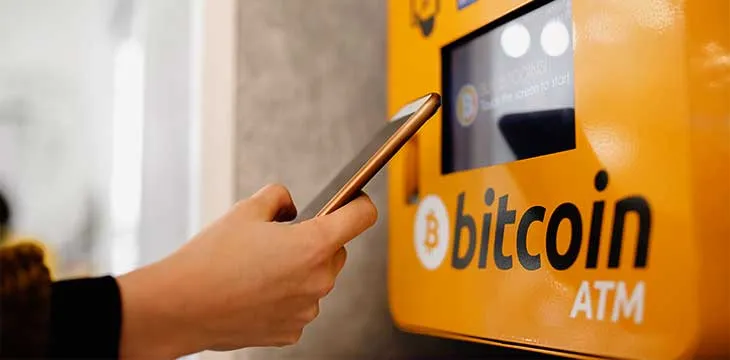|
Getting your Trinity Audio player ready...
|
The Nevada Financial Institution Division (NFID) now wants all cryptocurrency ATMs in the region to be licensed.
According to the announcement, Nevada authorities want all crypto ATM proprietors to pay a bond of $5000 per machine, similar to traditional ATMs businesses. This decision was reached after the State legislators failed to approve Senate bill No. 195 that proposed the licensing of crypto ATMs businesses.
The bill was to put in place the Uniform Regulation for Virtual Currency Business Act (URVCBA) proposed by ULC. However, this bill was strongly opposed by cryptocurrency influencers in Nevada.
In a statement, Teri Williams the NFID spokesperson said that ATMs operators are required to comply with the laws, fees and surety requirements. She explained:
Any entity that facilitates the transmission of or holds fiat or digital currency by way of brick-and-mortar, kiosk, mobile, internet or any other means, should contact the NFID to request a licensure determination.
Regulators in Nevada want to use this licensing opportunity to get the total number of ATMs in the region. In addition, they believe that having proper records will help minimize illegal activities in the region.
Currently, there are more than 3000 cryptocurrency ATMs in the United States, making up 60% of all the crypto ATMs globally. Las Vegas reportedly has more than 90 of those crypto ATMs.
The number of crypto ATMs keeps growing due their increased demand. A majority of the ATM users comprise of millennials, who find these machines convenient and cheaper compared to traditional banking.
While commenting on the matter, Chip Meyers of Hilt Ventures a crypto ATM providers stated:
Millennials are not trusting of government. There’s a movement around the world to provide financial services to those who don’t have bank accounts and don’t want to pay high fees. All they need is a phone.
Notably, Crypto ATM operators in Nevada are not too happy with the new regulatory requirements. They have complained that these regulations by NFID are rigorous compared to those of the Department of Treasury’s Financial Crimes and Security Network (FinCEN).
However, while speaking at the Anti-Money Laundering Conference on August 13, Kenneth Blanco the director of FinCEN said:
There is a misconception that just because FinCEN has not publicly issued enforcement action against a casino or card club since last year that FinCEN is not looking at this financial sector…Let me assure you, this is not the case.
Other jurisdictions have also enforced regulations on crypto ATM operators. Earlier in April, authorities in the Philippines announced that all crypto ATM businesses must get approval from the Bangko Sentral ng Pilipinas (BSP) to operate in the country.

 07-11-2025
07-11-2025 





